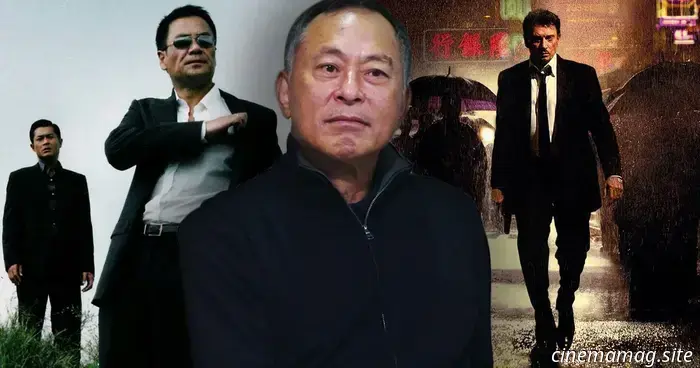
Johnnie To, the Contemporary Maestro of Hong Kong Cinema
Simon Thompson explores the work of Hong Kong filmmaker Johnnie To...
Johnnie To is an incredibly prolific and bold figure in Hong Kong cinema, with a career spanning from 1980 to the present. Approaching 70, he shows no signs of slowing down or losing his passion for filmmaking. To's position in the Hong Kong film industry can be compared to all members of The Wild Bunch combined, as he has witnessed the rapid transformation of both the nation and its film sector following the 1997 handover. Nevertheless, he has remained true to his artistic principles.
In the realm of Hong Kong cinema, To embodies a blend of Jean Pierre Melville and Daryl Zanuck, with his studio Milkyway Image—co-founded with partner Wai Ka-fai, a notable writer/director—allowing him to select projects that resonate with him. While To has explored various genres, he is most renowned for his work in crime and gangster films, creating masterpieces like the Election series, Exiled, Mad Detective, All About Ah Long, PTU, and Vengeance.
Born in April 1955 in the infamous Kowloon Walled City, notorious for its triad activity, To diverged sharply from the criminality surrounding him by dedicating himself to filmmaking. Inspired by figures like King Hu, Akira Kurosawa, Sam Peckinpah, Stanley Kubrick, and Jean Pierre Melville, he commenced his career at 17 as a messenger for the Hong Kong television station TVB.
By the early 1970s, To had advanced to the roles of executive producer and director at TVB through sheer determination, but his talent and vision meant that he wouldn’t remain confined to television for long. His first notable step towards recognition came in 1978 when he served as an assistant director on the action-comedy The Good, the Bad and the Beauties.
In 1980, To’s journey as a feature film director officially began with his debut, The Enigmatic Case, a wuxia action film influenced by his idol, King Hu. Although the film displayed hints of To’s unique style, it received a lukewarm reception, prompting him to return to television—an experience that would later prove beneficial.
Staying within the beloved wuxia genre, To directed a high-budget TV adaptation of Louis Cha's martial arts epic The Legend of the Condor Heroes. This series, part of Cha's renowned Condor Trilogy, became a cultural phenomenon in Hong Kong since it was published in the late 1950s and early 1960s. The adaptation was a massive success, achieving viewership as high as 90% in mainland China, which is remarkable given its vast population. Following this triumph in television, To returned to film in the mid-1980s, yet found himself somewhat stuck as a journeyman assistant director until he gained critical acclaim with All About Ah Long.
All About Ah Long narrates the tale of an ex-convict and struggling builder/single father named Ah Long (Chow Yun Fat), who cares for his son Porky (Huang Kun-Hsuen). Their lives take a dramatic turn with the return of Ah Long's ex, Porky’s mother Por-Por (Sylvia Chang), who, having believed her son dead, now wishes to take him back to the United States.
During the mid-1980s to early 1990s, heroic bloodshed action films and upbeat comedies dominated Hong Kong cinema, led by directors like Jackie Chan, Sammo Hung, Corey Yeun, and Wong Jing. The critical and commercial success of All About Ah Long—a family drama reminiscent of Kramer vs Kramer—was thus a noticeable divergence from the prevailing genre of that era, largely bolstered by Chow Yun Fat's status as the primary box office draw at the time.
Despite the success of All About Ah Long, To found himself directing formulaic action films and comedies that lacked creative identity through the early 1990s. Recognizing the need for substantial change if he were to craft films outside the constraints of box office trends, he took a decisive step in 1996, co-founding Milkyway Image with Wai Ka-fai. This independent studio granted To the creative freedom he long desired.
Milkyway aimed to counteract the rampant commercialism in the Hong Kong film industry following the 1997 handover by creating gritty crime films unflinching in their subject matter and violence. It wasn’t until three years later that the studio garnered attention with the releases of Running Out of Time and The Mission (not to be mistaken for the Roland Joffe film).
The significance of these two films in establishing Milkyway's distinctive style and ethos cannot be overstated, as they mark the inception of the thematic and visual motifs that would define To’s career in subsequent years. Both films, released in 1999, embody contrasting yet complementary ideologies and visuals.














Other articles
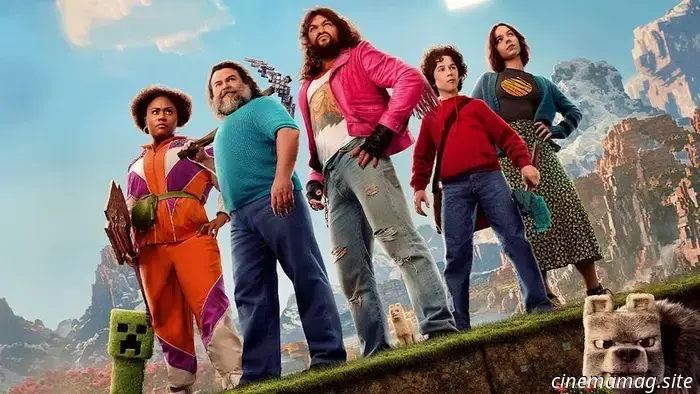 The Minecraft Movie has recorded the largest opening weekend since Deadpool and Wolverine.
Ensure your chicken jockey is prepared, as A Minecraft Movie emerges as the first significant success of 2025. This adaptation of the video game by Jared Hess dominated the box office over the weekend, achieving the top opening of the year and recording the highest opening weekend box office earnings since last year's Deadpool.
The Minecraft Movie has recorded the largest opening weekend since Deadpool and Wolverine.
Ensure your chicken jockey is prepared, as A Minecraft Movie emerges as the first significant success of 2025. This adaptation of the video game by Jared Hess dominated the box office over the weekend, achieving the top opening of the year and recording the highest opening weekend box office earnings since last year's Deadpool.
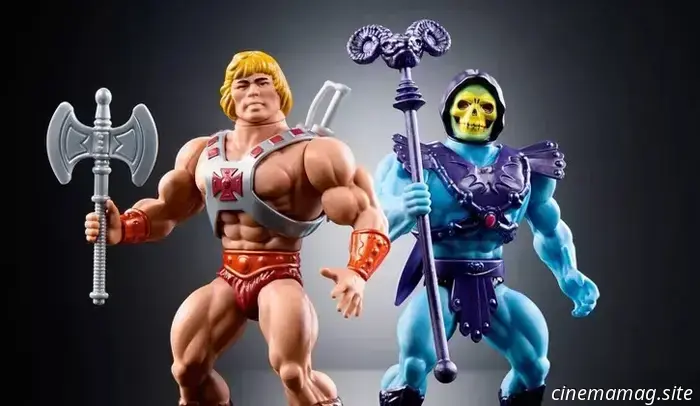 Mattel commemorates its 80th anniversary with a special 2-pack featuring He-Man and Skeletor from Masters of the Universe Origins.
In honor of Mattel's 80th anniversary, the toy giant has revealed a commemorative 2-pack of Masters of the Universe Origins featuring He-Man and Skeletor, which is now available for pre-order at Target for $44.99. Take a look at the promotional images here… SEE ALSO: Mattel introduces Masters of the Universe x ThunderCats Origins action figures This nostalgic Masters of […]
Mattel commemorates its 80th anniversary with a special 2-pack featuring He-Man and Skeletor from Masters of the Universe Origins.
In honor of Mattel's 80th anniversary, the toy giant has revealed a commemorative 2-pack of Masters of the Universe Origins featuring He-Man and Skeletor, which is now available for pre-order at Target for $44.99. Take a look at the promotional images here… SEE ALSO: Mattel introduces Masters of the Universe x ThunderCats Origins action figures This nostalgic Masters of […]
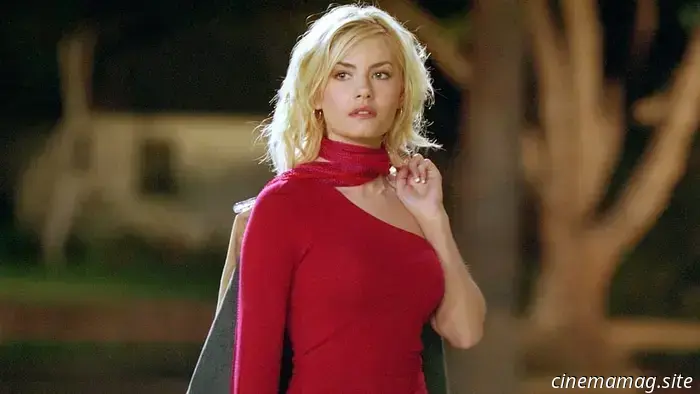 The 12 Most Voyeuristic Films We've Ever Watched
These are the most voyeuristic films we've ever encountered. They enjoy observing — and being observed.
The 12 Most Voyeuristic Films We've Ever Watched
These are the most voyeuristic films we've ever encountered. They enjoy observing — and being observed.
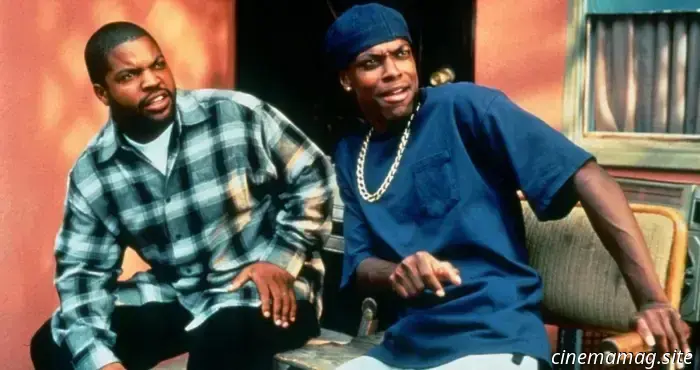 Ice Cube has finalized a deal to both write and star in Last Friday.
After nearly 25 years since the last installment, Warner Bros. and New Line Cinema appear prepared to proceed with the much-anticipated fourth Friday film. According to THR, Ice Cube has officially agreed to write and star in Last Friday. The announcement was made by New Line president Richard Brener.
Ice Cube has finalized a deal to both write and star in Last Friday.
After nearly 25 years since the last installment, Warner Bros. and New Line Cinema appear prepared to proceed with the much-anticipated fourth Friday film. According to THR, Ice Cube has officially agreed to write and star in Last Friday. The announcement was made by New Line president Richard Brener.
-Movie-Review.jpg) Black Cab (2024) - Film Review
After a night out, a couple finds themselves in a terrifying situation when they hail a black cab driven by Nick Frost, who has malevolent plans.
Black Cab (2024) - Film Review
After a night out, a couple finds themselves in a terrifying situation when they hail a black cab driven by Nick Frost, who has malevolent plans.
Johnnie To, the Contemporary Maestro of Hong Kong Cinema
Simon Thompson explores the career of Hong Kong director Johnnie To… Extremely productive (with a filmography that stretches back to 1980) and unyielding, Johnnie To is a towering figure in Hong Kong cinema who, as he nears 70 this year, has demonstrated no indications of diminishing activity or losing his passion […]
